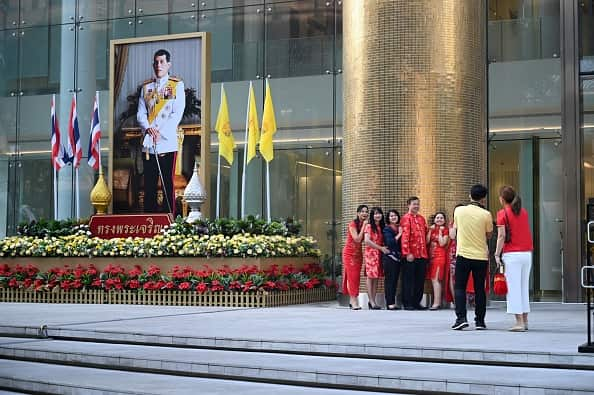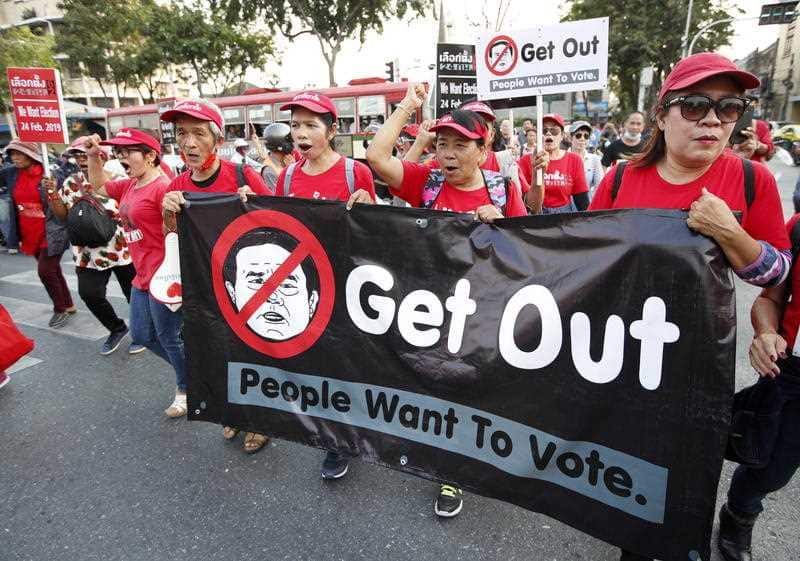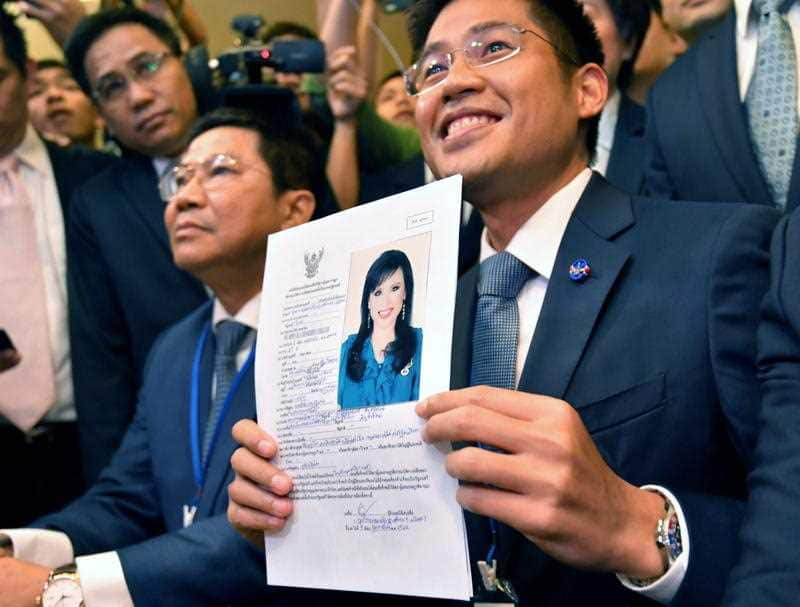Thailand's King Maha Vajiralongkorn has called his elder sister's bid to run for prime minister in March "inappropriate" and unconstitutional, likely sinking her candidacy for a populist opposition party.
Princess Ubolratana Rajakanya Sirivadhana Barnavadi, 67, stunned the nation when she announced on Friday she would be the sole prime ministerial candidate for the party, which is loyal to ousted ex-premier Thaksin Shinawatra.
It pits her against the chief of the ruling junta and redrawing the nation's political landscape.
The Thai monarchy, a revered institution shielded from criticism by a tough defamation law, has traditionally been seen as above the political fray, although royals have intervened in moments of political crisis.

Her candidacy instantly threatened to upend the first national ballot since a military coup in 2014 that ousted a government loyal to Thaksin, the figure at the centre of years of political turbulence and rival street protests that have riven Thai society.
But the opposition from Ubolratana's younger brother, a constitutional monarch, is likely to lead to the Election Commission disqualifying her.
Thailand has been a constitutional monarchy since 1932 but the royal family has wielded great influence and commands the devotion of millions.
"Involvement of a high-ranking member of the royal family in politics, in whatever way, is an act that conflicts with the country's traditions, customs, and culture, and therefore considered extremely inappropriate," the king said in a statement on Friday.
The statement was issued by the palace and later read on air by a television announcer.
King Vajiralongkorn also cited a provision in the constitution that states the monarch stays above politics and maintains political neutrality.
"All royal family members adhere to the same principles ... and cannot take any political office, because it contradicts the intention of the constitution."
Friday was the last day for parties to declare candidates.
Prime Minister Prayuth Chan-ocha, who was army chief when he led the 2014 coup and now heads the ruling junta, also announced his candidacy on Friday.
The March 24 election has been viewed as a straightforward battle between Thaksin's populists and their allies, on the one hand, and the royalist-military establishment on the other.

"Thank you for all the love and encouragement," the princess, who gave up her royal titles to marry a foreigner, said in a typically colourful Instagram post on Friday afternoon.
"I want to clarify that I have relinquished the rank of nobility and am living as a commoner ... I allowed Thai Raksa Chart Party to use my name for the nomination to the prime minister's post."
The party falls under the tutelage of Thaksin, a billionaire self-exiled former premier, who stands at the heart of Thailand's bitter political schism - loathed by the army and Bangkok elite, yet adored by the rural poor for health, welfare and education schemes.
The announcement thrusts him back to the centre stage of Thailand's political drama just as it appeared the military were set to succeed in sidelining him.
He was toppled in a 2006 coup, while his sister Yingluck was booted from power in a 2014 military takeover and forced into exile to avoid a jail term.
The princess's move deals a heavy blow to the aspirations of Prayut Chan-O-Cha, the junta head, who has spent nearly five years trying to recast the political system to limit the power of elected governments and prepare his own return as a civilian leader.
In a day of high drama, Prayut declared his candidacy for premier, running for the Phalang Pracharat army party, moments after the princess's announcement.
"I want to reassure that I do not intend to hang on to power. It is not easy for me to make my decision... it is a crucial moment for the country," he said.

The military under Prayut has cast itself as the protector of the monarchy.
But Ubolratana's shock entrance into politics, aligned with the junta's nemesis - the Shinawatra family - undercuts those claims.
Ubolratana, a colourful, public-facing royal in contrast to her more restrained brother King Maha Vajiralongkorn, relinquished her royal titles after marrying the American Peter Jensen in 1972.
But the couple divorced and she moved back to Thailand where she is still considered part of the royal family.
In Thailand she experienced tragedy, losing her autistic son Poom to the 2004 Asian tsunami.
Known to the public for lead roles in Thai films, onstage singing performances, a vibrant fashion sense and a sizeable Instagram following, Ubolratana is the first-born child of the late King Bhumibol Adulyadej.
Analysts said she is not technically covered by the kingdom's royal defamation law - which carries heavy jail sentences - but given the culture of deference to royalty, she is unlikely to face the scrutiny given to most politicians.
"Who would dare criticise a royal prime minister?" said Puangthong Pawakapan, professor of political science at Chulalongkorn University.
Since ascending the throne in 2016, King Maha Vajiralongkorn has reorganised palace affairs.
The vastly wealthy Crown Property Bureau is now under his personal stewardship, he has appointed several new privy counsellors and established a highly trained personal guard.
Crucially he has appointed a new army chief from a different faction of the military to the ruling junta.
His coronation will be held in May.

